Aleteia provides an overview of some recent 21st-century martyrs.
Lenten Campaign 2025
This content is free of charge, as are all our articles.
Support us with a donation that is tax-deductible and enable us to continue to reach millions of readers.
The blood of martyrs continues to be the seed of new Christians at the beginning of 2018. This is the conclusion we can draw from reviewing the testimonies of men and women who, in various countries around the world, have shed their blood for their faith in Jesus.
Below, we offer a list of present-day witnesses to the Gospel who have been faithful to the very end.
The list is necessarily incomplete. If you know other cases of Christians of any denomination who have been killed for their faith in Christ, please mention their names in the comments below this article, offering sources that will allow us to document the circumstances of their death.
1. Pakistan: Brutally killed at 15 years of age because he was a Christian
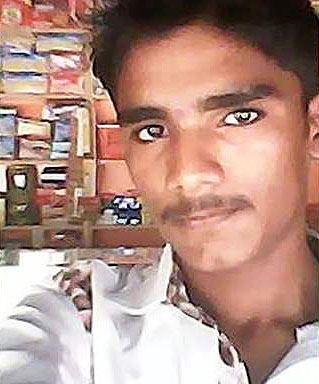
His name was Sharoon Masih, and he was only 15 years old. For a while, he had been asking his family and his teachers about the possibility of changing schools in his town of Burewala (near Multan), in the south of Punjab, because his classmates had submitted him to all kinds of threats and bullying for one reason: he was Christian.
On August 30, 2017, the situation degenerated. On this occasion, other children from his class forcefully trapped him and took him apart from the rest to beat him.
“Either you convert to Islam, or we kill you,” they said. The boy, who had been threatened this way in the past, answered as he had on other occasions. This time, however, his lips were already shaping the word “no,” in response to the pain of the blows that began to fall upon him from his furious classmates.
Influenced by the fanaticism that dominates certain Islamic environments in Pakistan, the punches and kicks became more intense and frequent. The students’ rage fed upon itself.
Shortly afterwards, the boy lay lifeless on the ground. The school staff took him to the hospital in Burewala, where doctors could do nothing but confirm the savage murder.
The chronicle of his death was published by the Holy See’s missionary news agency, Fides.org .
Mushtaq Gill, a Christian lawyer handling the case, explains that Masih’s death is a terrible example of Christian persecution in that country: “Violence begins at the desks in the schools, because even primary school textbooks incite hate against non-Muslims.”
James Paul, a Pakistani Christian professor, president of the “Pakistan Minorities Teachers’ Association” (PMTA), confirms that this murder is a clear symptom of the persecution of Christians in his country.
The situation of Christians in Pakistan—including both Catholics and Protestants—is dramatic: on June 2, 2017, Christian worker Irfan Masih, who had fainted while working in a sewer in Umerkot, in Lahore, died after a hospital medic refused to touch his dirty body in the middle of Ramadan, according to a report by Fides.org.
In that same country, Asia Bibi has just spent her ninth Christmas behind the bars of a prison in Multan, falsely accused of having blasphemed. In reality, she had simply mentioned the name of Jesus while among her neighbors, while washing clothes. Unfortunately, her case isn’t unusual. Other Christians have spent Christmas in prison, victims of the law against blasphemy.
2) Bolivia: A young Polish missionary, capable of risking everything for Christ
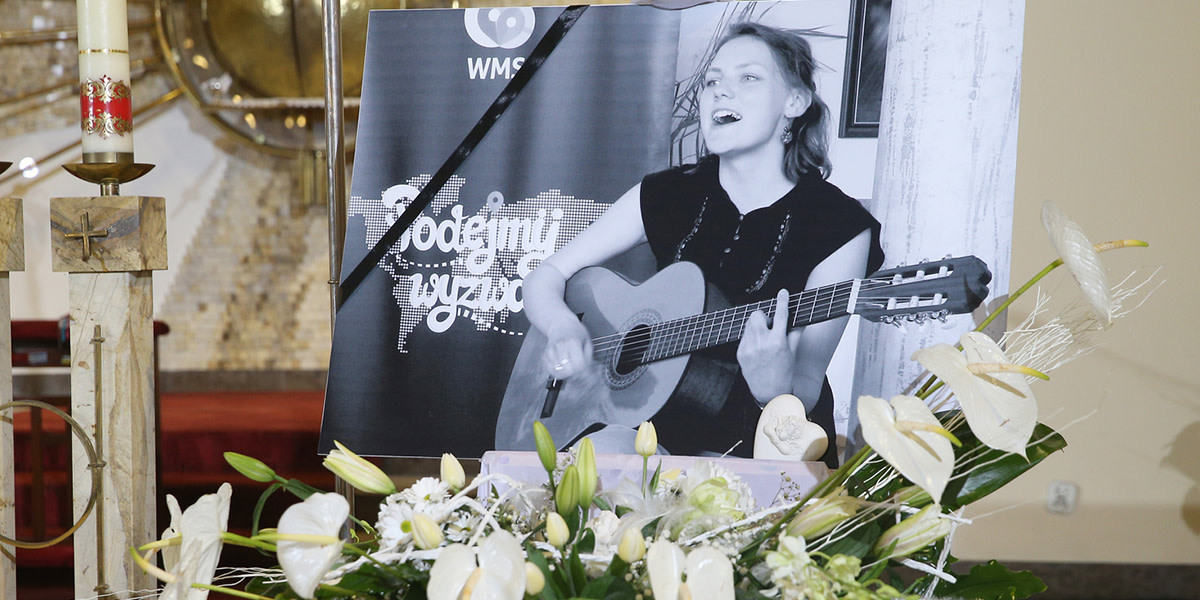
Helena Agnieszka Kmiec, a beautiful and talented 26-year-old Polish woman, had a dream: to dedicate six months of her promising life to helping children in Pacata Alta, in Bolivia, and to share with them her greatest treasure: Jesus’ love.
Her dream was cut short last January, 15 days after her arrival, by 14 knife wounds inflicted by two men who have since been imprisoned by Bolivian justice.
Helena was a member of a Polish Catholic community called Wolontariat Misyjny Salvator (“Savior Voluntary Mission”) in Gliwice, Poland. On her Facebook wall, she had shared her joy upon arriving in Bolivia: “It’s summer here; it’s 27ºC and they welcomed us as sisters. Cochabamba will be our home for the next six months.” Those were the last words she wrote.

Helena was the victim of two criminals who invaded to rob the residence of the religious of the Servants of the Mother of God, where she was living. When the young woman discovered the invaders, they killed her.
Her generosity had already taken her on missions in other countries—Romania, Hungary, and Zambia—where she had left behind the unforgettable memory of her smile and of the melodies of the songs she sang and played on her guitar, an authentic caress from God for many people in need.
Helena’s case reveals the challenge facing missionaries in Latin America, a sub-continent where, during 2017, eleven missionaries died (eight priests, one religious, and two lay people).
In particular, priests have paid a high price due to the wave of insecurity afflicting many Latin American countries. In Mexico, 4 priests have been killed this year; 3 were killed in Colombia, 1 in Brazil, and 1 in Haiti.
Sadly, in recent years Latin America has become a very dangerous place for missionaries. They are not all martyrs of the faith (because many died as victims of ordinary crime), but the majority had voluntarily accepted to work as missionaries in their communities, despite being aware of the risks involved.
3) Nigeria: Killed by human bombs
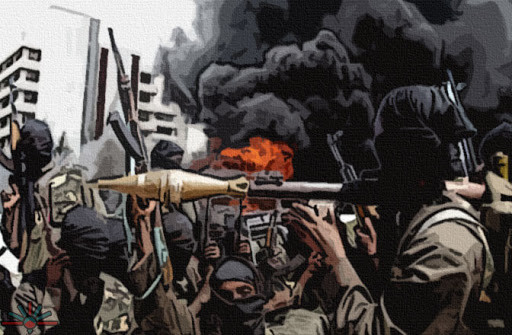
Nigerian Christians are among the high-priority targets of Boko Haram, one of the bloodiest Islamic fundamentalist terrorist groups on the planet.
Last December 11, suicide bomber terrorists approached the gates of the Church in Pulka, in northeastern Nigeria—one that is particularly committed to providing care for refugees repatriated from Cameroon.
Vatican Radio has revealed that, among the Boko Haram fighters involved in the attack, there were two women of between 19 and 29 years of age who, upon seeing the oldest of the catechists, Joseph Naga, approached him to hug him.
Another catechist from the parish, John Manye, and one of his assistants (of whom we only know the first name, Patrick) suspected what was going to happen, and drew near to try to help John.
When they saw the catechists’ reaction, the two women detonated their explosive vests, causing the death of the catechumens who were near the catechists, preparing for an upcoming visit from the bishop who was going to administer the sacraments to them.
Joseph, who was 56 years old and the father of 11 children, had been a catechist since he as 36; John, 38 years old and father of five, had been serving as a catechist for ten years. Patrick was 27 years old, and still a bachelor.
Boko Haram, which has given its allegiance to the so-called Islamic State, has among its declared objectives the establishment of Sharia (Islamic law) in all the states of Nigeria. Christians in that country, both Protestants and Catholics, are among its primary victims.
4) China: “Living martyrs”
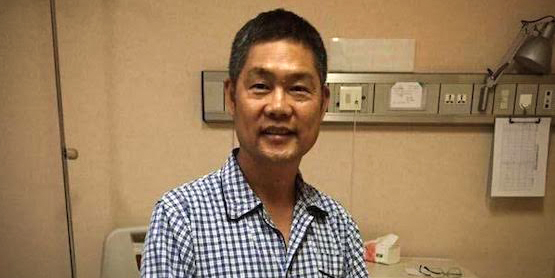
They were “living martyrs.” In 2017, numerous bishops and priests of the Catholic Church in China have died, after suffering tremendous persecution and many years of prison or forced labor.
Bishop Sylvester Li Jiantang, who had been the bishop of Taiyuan, died on August 13 at the age of 93. He had been imprisoned for 14 years (1966-1980) in a forced labor camp, according to a report from Asianews.it. After being ordained a bishop, he dedicated a large part of his efforts to re-launching the seminary of his diocese. The local government reacted by closing the seminary in 2013.
Bishop Paul Xie Tingxzhe, bishop of Urumqi, in Xinjiang, died on August 14, at the age of 86. Towards the end of the 1950s, when he was no more than a seminarian, he was imprisoned for refusing to form part of the Chinese Catholic Patriotic Association, which is controlled by the communist regime.
He was compelled to do forced labor for nearly 20 years (from 1961 to 1980). After being freed, he was ordained to the priesthood, and in 1991 he was consecrated as a bishop in secret. He was very active in announcing the Gospel on the internet. He also led chat groups where he taught Latin hymns to his friends.
On December 7, Matthias Yu Chengxin, bishop coadjutor emeritus of Hanzhong (in Shaanxi) died at the age of 90, according to a report by Asianews.it.
He entered the seminary in 1956, which was closed two years later, going underground. During the Cultural Revolution (1966-1976) he was first kept under house arrest, and then was submitted to forced labor in a concentration camp. He was secretly ordained a bishop in 1989.
On June 9, Bishop John Liu Shi-gong died at the age of 89. He was the bishop of Jining in Inner Mongolia, in continental China. Ordained a priest in 1956, he was subjected to forced labor during the Cultural Revolution.
Bishop Casimir Wang Milu of Tianshui (Qinzhou), in the Gansu province, passed away at the age of 74 on February 14. He had spent much of his episcopal ministry in jail. He had been ordained a bishop clandestinely in 1981. In 1983, the authorities put him in jail for 10 years.
The lives of clandestine bishops in China still continues to be extremely difficult, as some of them continue to be deprived of their freedom.
Such is the case, for example, of Bishop Thaddeus Ma Daqin, auxiliary bishop of Shanghai, who has been under house arrest since 2012, because at his episcopal ordination he announced that he was abandoning the Patriotic Association controlled by the government.
Another example is the case of Peter Shao Zhumin, Bishop of Wenzhou (Zhejiang), who has been in police custody for eight months. On September 11, the bishop was seen in the Tongren hospital in Beijing for an ear operation. In a message sent by Wechat, he asked the faithful to pray for him, but not to visit him, due to security issues.
The cases of priests who have been deprived of their freedom in China are yet more numerous. They are authentic “living martyrs.”
5) Philippines: Workers give their lives so as not to deny their faith
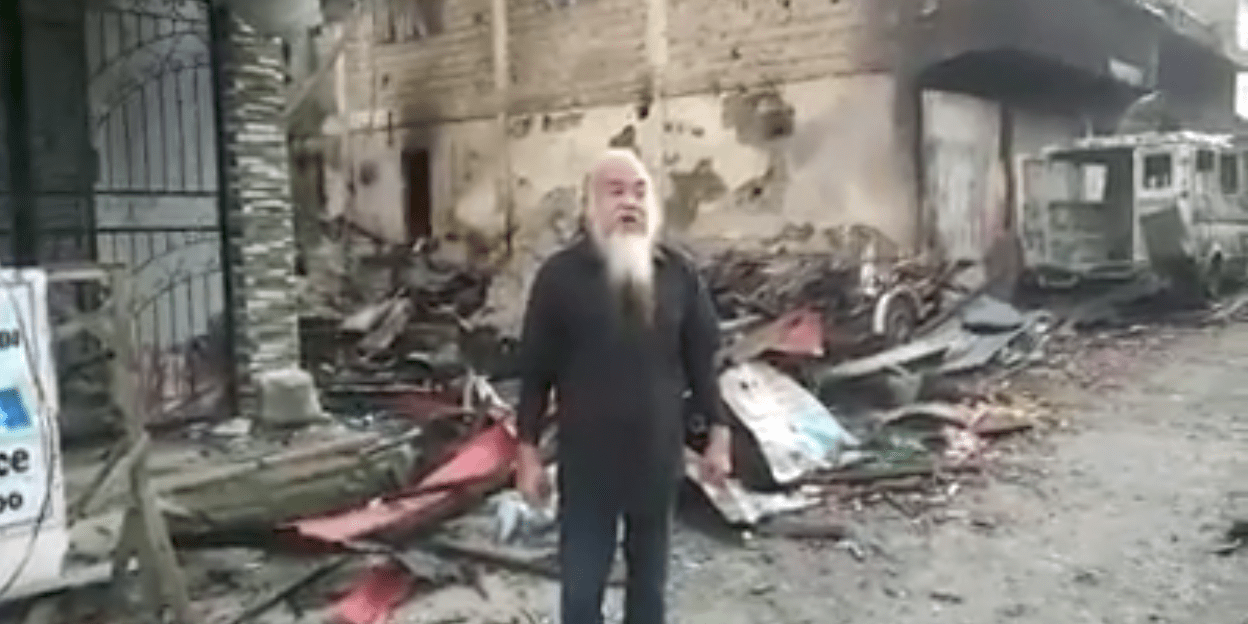
They were killed for not reciting the shahada, the Islamic profession of faith. Thus, eight Christians bore witness to their faith on the Philippine island of Mindanao.
Their martyrdom was confirmed by the investigation that the local authorities carried out after the barbarous act, perpetrated by terrorists of the Maute Group, also known as the Islamic State of Lanao, tied to the Islamic State (ISIS).
The Christians were construction workers who were traveling from Marawi to Iligan City, when they were detained by the terrorists. Their hands were tied, and they were offered a choice: to profess the Islamic faith and save their lives, or die.
The eight Filipinos didn’t hesitate, and entrusted their souls to the Lord. A gunshot was the last thing each of them heard before falling to the ground. Their bodies were abandoned in a ditch with a sign reading “Munafik,” which means traitor or liar.
Shortly before, the same terrorist group had kidnapped Filipino Catholic priest Teresito “Chito” Soganub (known as Fr. Chito) in the cathedral of Mary Help of Christians in Marawi, along with 23 Catholic lay people. Fr. Chito is well known in Mindanao for his work promoting dialogue between Christians and Muslims. The terrorists then burned the cathedral. The priest’s captivity, which lasted 117 days, ended thanks to an anti-terrorist operation by the Philippine army.
6) India: They had warned him: “Stop preaching the Bible.”
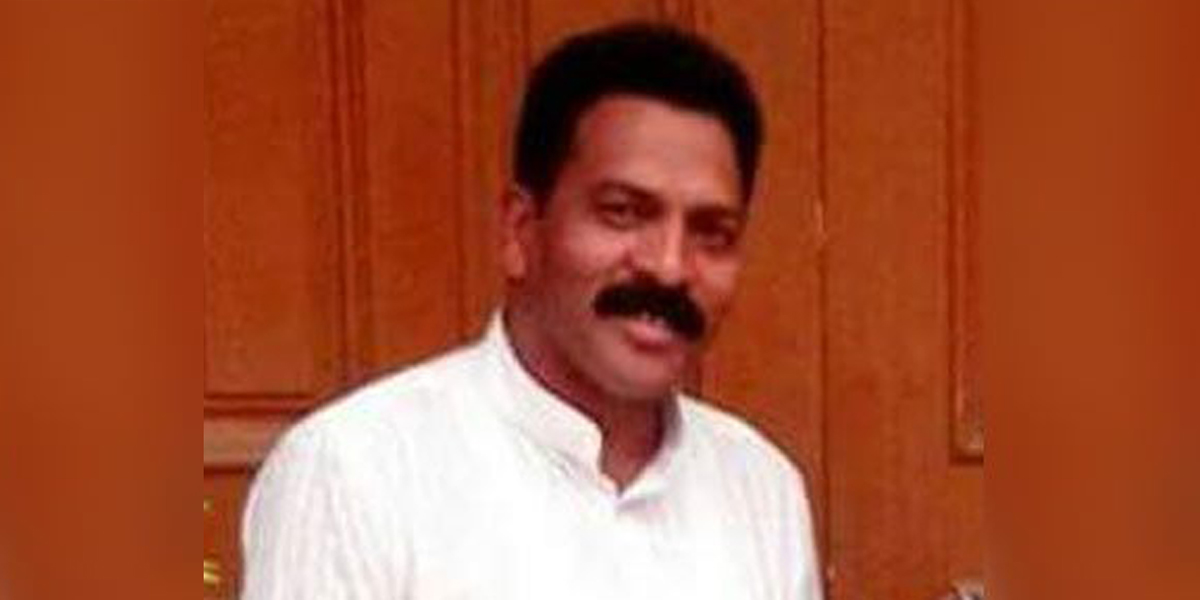
They had told him on various occasions to stop preaching the bible. Nonetheless, Sultan Masih, 47 years old, Pentecostal pastor of the Church of the Temple of God in Ludhiana, the largest city in the Indian state of Punjab, didn’t stop.
Two men on motorcycles shot him in the legs, the face, and the chest, while he was talking on the phone outside the church, according to local press accounts.
The pastor, who also ran a school for poor children, had carried out his mission at that church for 20 years. He had four children, two of whom were adopted.
As his 22-year-old daughter Alisha Masih explained, her father had been threatened many times over the phone and on the internet. In short, they kept saying, “Stop preaching or we will kill you.”
It’s clear that his homicide was planned, as the murderers had studied his movements and knew exactly when he would be most vulnerable to attack.
Indian police and intelligence service investigations are still ongoing. However, this past December 31, The Times of India explained that the police had concluded that this homicide, like others this year in Punjab, had been planned by the Islamic Army, which is headquartered in Pakistan.
The year 2017 has been very difficult for the Christian community in India, which makes up only 2.3 percent of the population. According to Persecution.org, in just the first six months of the year, there were 410 violent attacks against Christian communities, most of which were perpetrated by Hindu fundamentalists.
7) North Korea: Anonymous martyrs
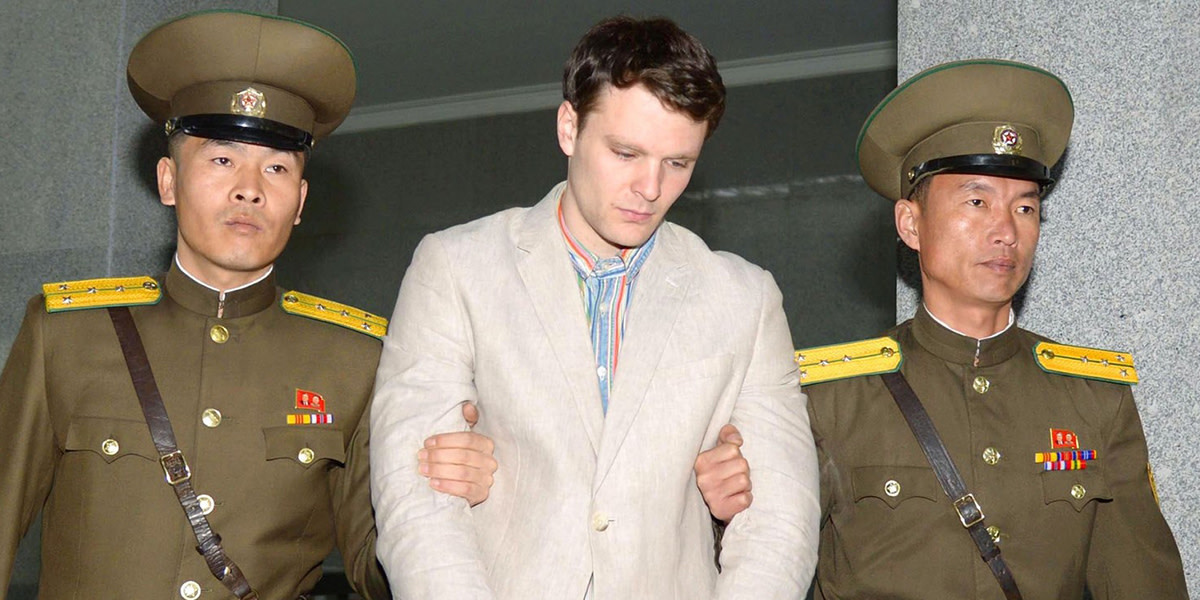
The place in the world where the situation of Christians is most difficult is North Korea, and paradoxically, it is impossible to know the names of its martyrs and persecuted Christians.
According to a report on “Christians oppressed for their faith between 2015 and 2017,” published by the pontifical organization Help for the Church in Need, freedom for Christians has been totally crushed in the country of Kim Jong-un.
“In North Korea, the most ruthless persecutor—as the report categorizes the country ruled by Kim Jong-un—the indescribable atrocities committed against Christians include food deprivation and forced abortions, while there have also been reports of cases of believers tied to crosses and placed over fire. Others have been crushed by steam presses.”
Christians who are caught practicing their faith, the report adds, are “automatically incarcerated and sentenced to death, or are consigned to forced labor, torture, persecution, starvation, rape, forced abortion, and sexual violence.”
In that country, explains Help for the Church in Need’s report, “the ‘Songbun’ system of social stratification determines people’s access to goods and services such as food, education, and health care, based on the position citizens hold in one of the 51 possible categories indicating greater or lesser loyalty to the regime.”
“Those in the last categories are classified as hostile to the State (Protestants are ranked 37, whereas Catholics are in 39th place). This system favors discrimination based on religious creed within the dominant structure of the communist community.”
The death of American student Otto Warmbier last June 2017 after being held in prison in North Korea drew attention to the situation in which persecuted people live.
The regime attributed his crime to Christianity, despite the fact that Warmier was Jewish. The State accused him of having removed a political poster on display in his hotel, at the request of a friend who belonged to the Friendship United Methodist Church.
In its accusations against Warmbier, the regime insisted on the fact that Christianity is a foreign phenomenon.
A former North Korean security agent revealed to Christian Solidarity Worldwide, a non-governmental organization, that the regime relates Christianity with the United States, and considers Christians to be foreign spies, for which reason they should be brought to justice.
The terrible state of health in which Otto Warmbier returned to the United States, totally unconscious, helped the world to understand a bit better the terrible conditions faced by detainees in North Korean concentration camps.
Sources for the study in question consider that three quarters of the Christians detained in concentration camps die as a result of the terrible punishments.
Nonetheless, their names remain totally hidden by security services. They are the anonymous martyrs of our day.
8) Copts: Fidelity to Christ to the point of heroism
While the world prepared to celebrate the new year, this December 30, 2017, nine people were cruelly killed in an attack against the Christian minority in Egypt, perpetrated by an armed Jihadi in a church south of Cairo, for which ISIS claimed responsibility.
It was the last of a series of attacks committed by Jihadis which, in 2017 alone, left more than one hundred dead. It’s a very high price being paid by Coptic Christians, a community making up 10 percent of the nearly 100 million inhabitants of Egypt, the largest minority in a majority Muslim country.
Copts are the largest Christian community in the Middle East, and one of the oldest as well; according to tradition, this Church was founded in the year 50, when Mark the Evangelist—whom the Copts consider the first patriarch of Alexandria—visited Egypt.
His successor, Theodoros II, Pope of the Coptic Orthodox Church and Patriarch of Alexandria, said in a message conveying his condolences to the victims, that their community “remains strong, and able to defeat the dark forces” with the force of their fidelity to Christ.
Since December of 2016, the Egyptian branch of the Islamic State has killed dozens of Christians in attacks using bombs and firearms in churches throughout the country.
The Islamic State claimed responsibility for a suicide attack against the Coptic church of Sts. Peter and Paul in Cairo on December 11, 2016, causing 29 deaths.
In April of 2017, 45 people died in two suicide attacks—also claimed by the Islamic State—in Alexandria, the second largest city in the country, and in Tanta, in the north.
In May, an armed member of that terrorist group killed 28 Christians in southern Cairo as they traveled to a monastery.
Terrorist Jihadism’s obsession with persecuting Coptic Egyptians is part of the movement’s religious intolerance. Furthermore, Copts are a vulnerable target, both because they are a minority in a majority Muslim society, and because they live in something of a state of social marginalization.
All of these attacks that took place in the past year met with a certain degree of indifference in the international community and media. We can just imagine how the international community would react if such a series of serious attacks were to take place in any European country; It seems as if there are first and second class human lives, depending on whether or not they live in the West.
Only Pope Francis seems concerned about what is happening to Coptic Christians. During his trip to Egypt, April 28-29, he sought to call the world’s attention to their persecution, honoring the Coptic Church for its fidelity to Christ over the past two millennia, despite the constant persecutions it has faced.
9) Cameroon: Death to the bishop?
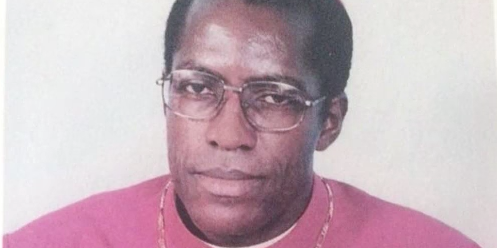
The enemies of the Church sometimes are proud of having killed Christians; other times, they hide it, washing the blood off their hands. The latter case seems to explain the violent death of the bishop John Paul II had chosen for Bafia, Cameroon.
He was known all over the country for his missionary spirit, which had led him to found parishes, to promote Christian schools, and to introduce into liturgical celebrations the balafon, a kind of xylophone typical of traditional African music.
On the night between May 30 and 31, 2017, the bishop left his residence after receiving a phone call. Inside his vehicle, which appeared the next day on a bridge over the Sanaga river, a note was found, which said “I am in the water.” This somewhat surreal text would seem to indicate that it’s a device to fake a suicide. Three days later, his body appeared in the river.
According to the first results of the investigation, the bishop’s body had been thrown into the water after being tortured and killed. However, on July 4 the attorney general of Cameroon presented a report stating that the most probable explanation was that the bishop died of suicide by drowning.
Four days later, Bishop Samuel Kleda, Archbishop of Douala and president of the Cameroon Episcopal Conference, declared that he did not agree with the attorney general’s conclusions, and confirmed that “Bishop Jean Marie Benoît Bala was brutally assassinated.” In July, the Episcopal Conference decided to file charges against unknown culprits for the bishop’s death.
On August 3, the provisional successor of the bishop as diocesan administrator, Bishop Joseph Akonga Essomba, decalred that the bishop’s killers enjoy the protection of members of the government.
On August 28, the bishop’s tomb in the Cathedral of Saint Sebastian in Bafia was desecrated. The profanation is being investigated, as the case of his death is still open at the attorney general’s office in Yaoundé.
The lack of clarity in the investigation of the death of Bishop Bala reminds us that many other Catholic missionaries have also been murdered in recent decades in Cameroon, without the perpetrators ever being found.
Such is the case, for example, of one of Bishop Bala’s closest collaborators, the rector of the minor seminary of Saint Andrew in Bafia, Fr. Armel Djama, who was found dead in suspicious circumstances.
Other examples of Catholic missionaries who died tragically and without the guilty parties being identified are Bishop Yves Plumey, archbishop emeritus of Garoua (1991); Fr. Joseph Mbassi, editor of the Catholic publication “L’Effort camerounnais” (1988); Jesuit theologian Engelbert Mveng (1995); French religious Germaine Marie Husband and Marie Léone Bordy, who ran a dispensary at a Catholic mission (1992); and Fr. Apollinaire Cloude Ndi, pastor of a church near Yaoundé (2001). Since 2010, many parishes and pastors have suffered attacks, which often met with silence from civil authorities.
In Cameroon, the murder of Christians is presented as suicide, even though nobody seems to believe it.
10) In the hands of the Islamic State
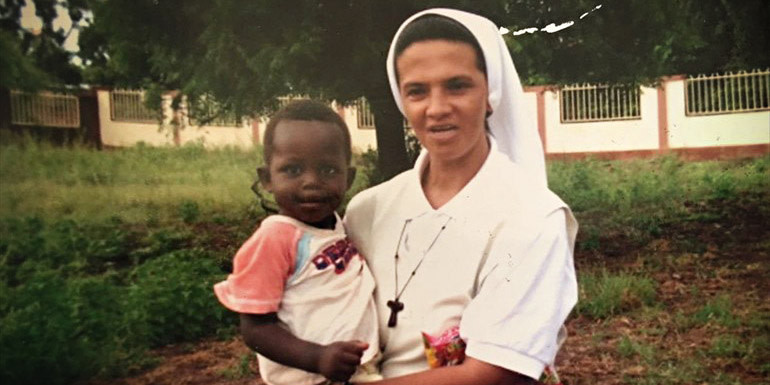
A review of the witnesses of the faith who have given their lives for Christ during the past year would not be complete without mentioning the cases of Christian missionaries who have been kidnapped by the Islamic State or other Jihadist groups in various countries.
The most recent case is that of a Colombian missionary, Sister Gloria Cecilia Narváez Argoty, kidnapped on February 8 in the town of Karangasso, in Mali.
The Al Qaeda group of Mali published a video on social media in July, in which the nun appears with five other people who have also been taken hostage by the Jihadist group. Despite the mobilization of the Church and government forces, there is still no concrete news about Sister Gloria.
Even more tragic is the situation of Italian Jesuit priest Paolo Dall’Oglio, kidnapped on July 29, 2013, in Al Raqa, Syria. In recent years, all sorts of rumors have circulated, but for the moment there is not certain information about his fate.
In the midst of this series of tragic news, a sign of hope was the liberation on September 12 of Indian Salesian priest Tom Uzhunnalil, who had been kidnapped on March 4, 2016, in Aden in Yemen, during a Jihadi attack on a house for elderly religious of Mother Teresa’s congregation, during which four sisters were killed along with 12 other people.








